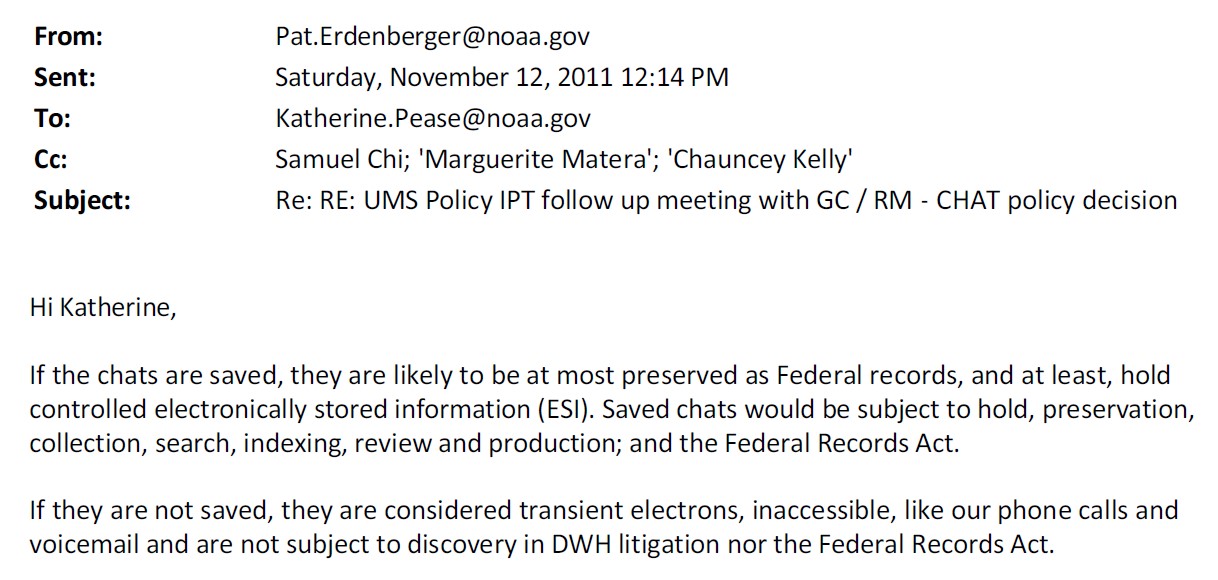The number of communications devices and platforms has mushroomed in recent years, making communication both quicker and easier. Naturally, these technologies have been incorporated into business and government. The use of instant messaging applications (“IM”) for business communications has become so common that most enterprise software includes IM functionality (for example, Google Hangouts, Skype for Business instant messaging, Slack, etc.).
In response to these developments, the Federal Records Act (“FRA”) was amended in 2014 to codify a new definition of electronic messages. The FRA now states that electronic messages include “electronic mail and other electronic messaging systems that are used for purposes of communicating between individuals” 44 U.S.C. § 2911. Electronic communications sent or received in the course of agency business—regardless of the method of message delivery—are therefore federal records and must be properly captured, retained, and stored such that they can be searched and reproduced upon request. National Archives and Records Administration (“NARA”) Bulletin 2015-02, “Guidance on Managing Electronic Messages,” makes this explicitly clear.
Unfortunately, recent events have highlighted the failure of federal agencies to properly capture, retain, and store electronic messages, including:
- five months of missing, and then recovered, text messages between the FBI’s Peter Strzok and Lisa Page related to their official duties,
- 2016 EPA Inspector General investigation into the use of encrypted text messages,
- CFPB using encrypted messaging apps, the so-called “Dumbledore’s Army”,
- IRS not retaining communications through their internal instant messaging system due to a memorandum of understanding with the Treasury Employees Union, and
- NOAA’s questionable use of Google Hangouts.
It appears incidents of federal agencies neglecting and/or intentionally failing to properly capture, retain, and store electronic messages that are federal records are not isolated or exceptional. In light of this, CoA Institute has launched a broad inquiry into federal agencies’ efforts to implement the 2014 FRA amendments and NARA Bulletin 2015-02. Last week, CoA Institute sent FOIA requests to nearly forty agencies seeking records:
- regarding policies on the use, retention, and management of electronic (instant) messages;
- related to implementation of or compliance with NARA Bulletin 2015-02;
- reflecting the electronic messaging systems installed on agency devices; and
- reflecting whether the agency has enabled automatic electronic message archiving, indexing, and eDiscovery features on instant messaging platforms in use.
The FRA and Freedom of Information Act are essential to government transparency and accountability and they must be enforced even when—or especially when—government regulations, policies, and practices lag behind the implementation of new technologies. With respect to instant messages, the federal government’s characteristic bureaucratic torpidity bears potentially far-reaching implications for proper oversight of the federal government. With this investigation, CoA Institute seeks to discover whether (and where) government neglect or exploitation of new technologies threatens transparency and accountability.
Thomas Kimbrell is a research fellow at Cause of Action Institute.



